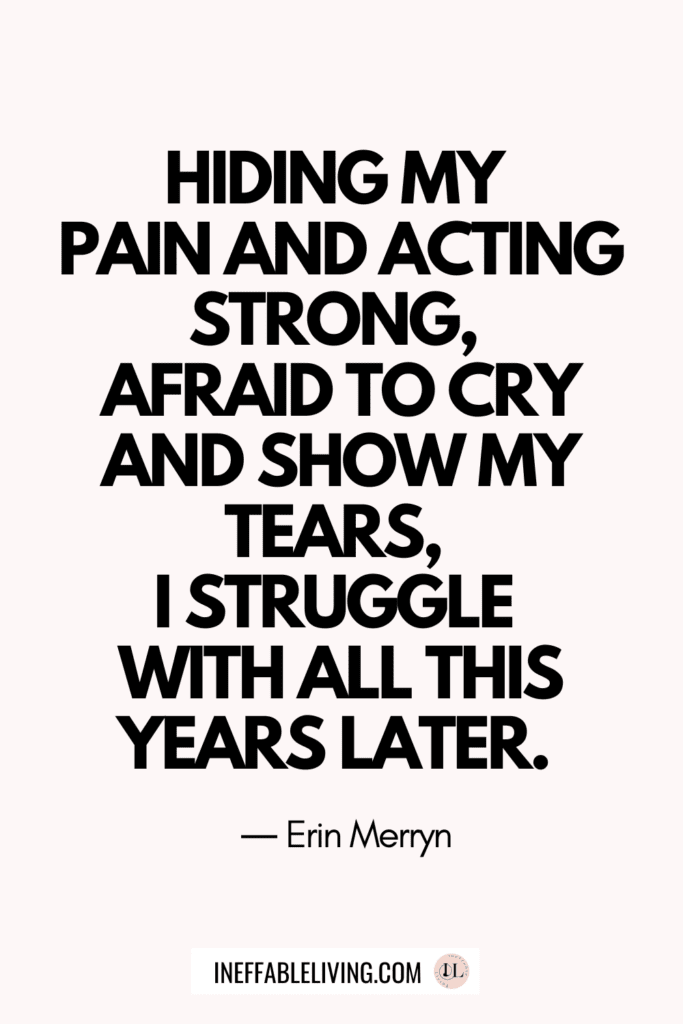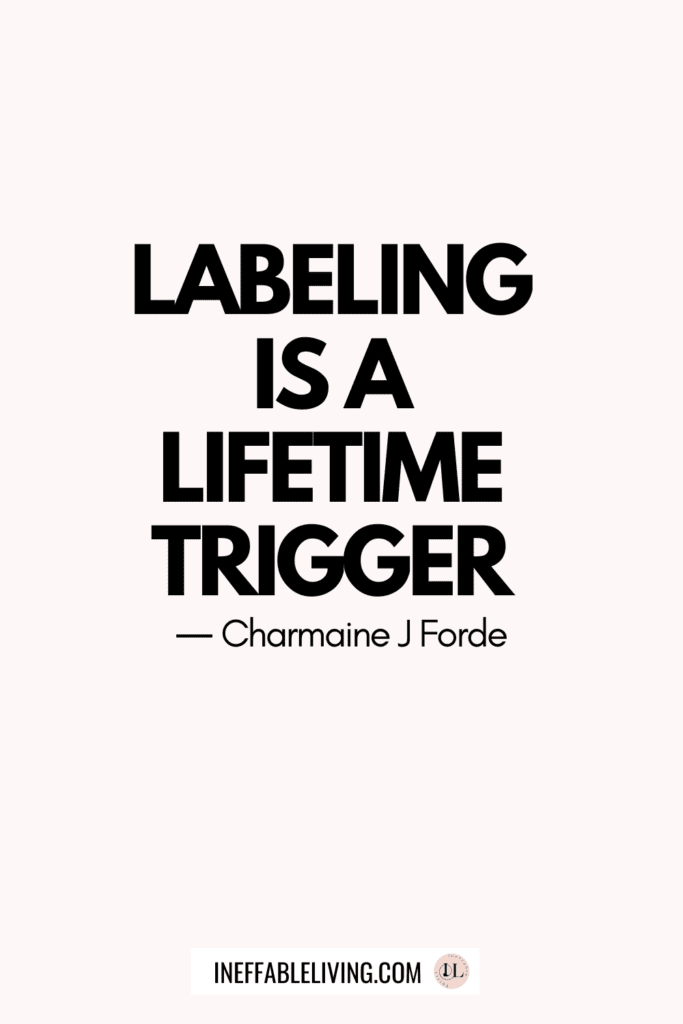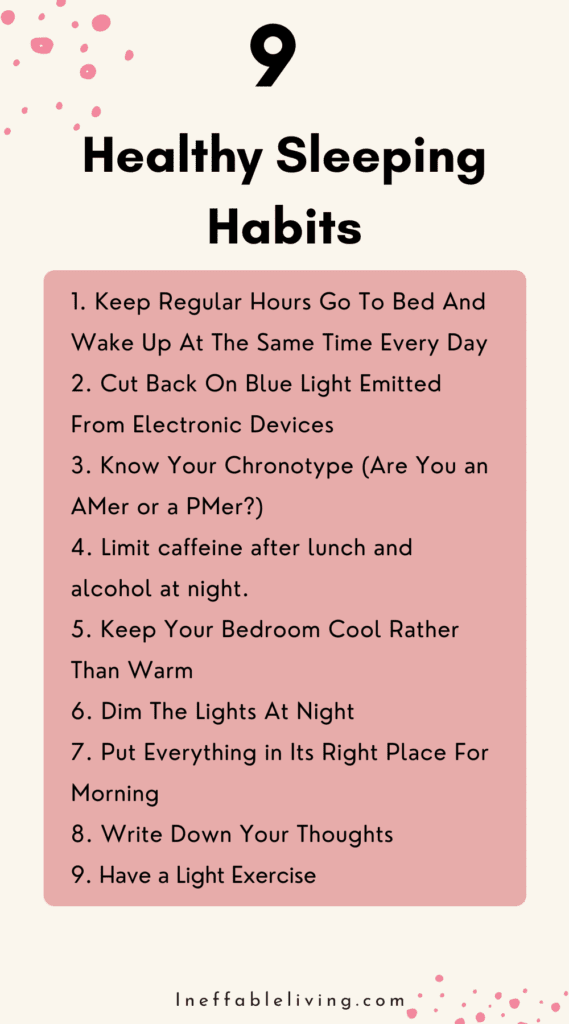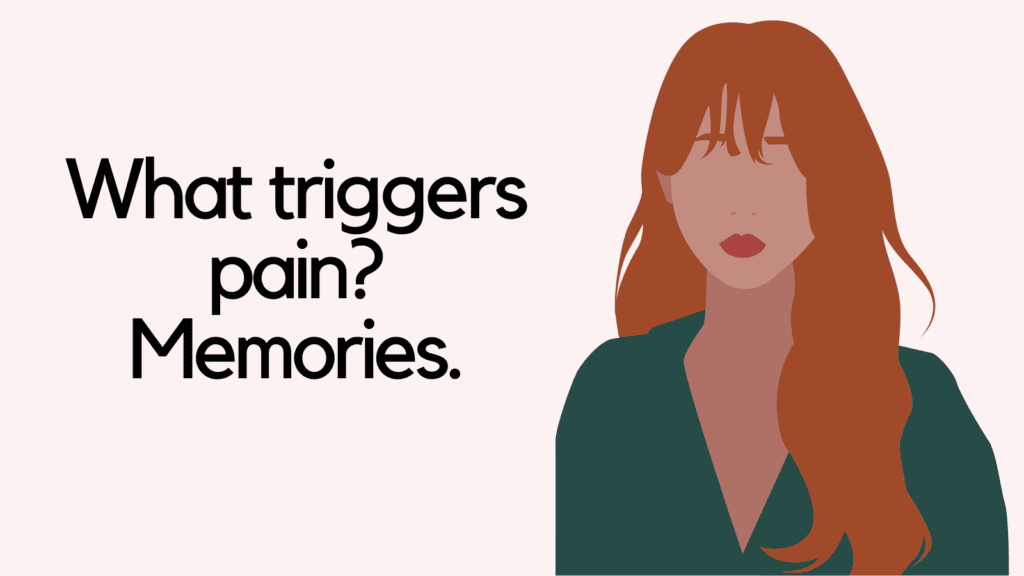This post contains some of the best emotional triggers quotes.
What Are Emotional Triggers?
Emotional triggers are anything that sets off an intense emotional reaction within an individual.
These triggers can be events, situations, words, or even smells that arouse powerful feelings and memories in a person.
Emotional triggers can be positive or negative, and the response they elicit tends to be quick and automatic, often beyond the person’s conscious control.
The intensity of the emotional response triggered by these stimuli can vary depending on the individual’s previous experiences, personality, and current mental and physical state.
Emotional triggers can be important to identify and understand to help individuals manage their emotions and reactions more effectively.
Examples of Emotional Triggers
Emotional triggers are specific circumstances, events or situations that create a strong emotional response in an individual.
Here are a few examples of emotional triggers:
1. Fear of failure or rejection: This is a common emotional trigger that can lead to feelings of anxiety, self-doubt, and inadequacy.
2. Trauma or abuse: Experiences of physical, emotional, or sexual trauma can trigger intense emotions like fear, anger, and sadness.
3. Loss or bereavement: The death of a loved one or the ending of a relationship can trigger intense feelings of grief and loss.
4. Humiliation or shame: Experiences of public embarrassment or shame can trigger feelings of humiliation, inadequacy, and low self-esteem.
5. Injustice or discrimination: Witnessing or experiencing injustice or discrimination can trigger feelings of anger, frustration, and helplessness.
6. Change or uncertainty: Big life changes, such as moving house or starting a new job, can trigger feelings of anxiety and overwhelm.
7. Abandonment or rejection: Experiencing rejection or abandonment can trigger feelings of loneliness, isolation, and sadness.
8. Betrayal or distrust: Being betrayed or lied to can trigger feelings of anger, hurt, and deep disappointment.
Emotional Triggers Quotes
1. “Hiding my pain and acting strong, afraid to cry and show my tears, I struggle with all this years later.” ― Erin Merryn
2. “I think repressing what happened is what saved me in my childhood. I was able to use my imagination to create happy events, but a little girl can carry only so much on her own.” ― Erin Merryn
3. “It’s time for students to learn that Life is Triggering. Once they leave college, they’ll be constantly exposed to views that challenge or offend them. There are a lot of jerks out there, and no matter what your politics are, a lot of people will have the opposite view.” ― Jerry A. Coyne
4. “Labeling is a lifetime trigger” ― Charmaine J Forde
5. “Many psychologists use the term existential to describe the fact that all human beings are subject to painful events. These are the normal recurring afflictions that everyone suffers from time to time. Horrible world events, difficult choices, illnesses and periodic feelings go abject loneliness are common examples of existential pain. Existential calamities can be especially triggering for survivors, because we typically have so much family-of-origin calamity for them to trigger us into reliving.” ― Pete Walker
Related: The Difference Between Pain And Suffering (+Top 4 Tips On How To Embrace Pain & Stop Suffering)
6. “The best ideas will eat at you for days, maybe even weeks, until something, some incident, some impulse, triggers you to finally express them.” ― Criss Jami, Killosophy
7. “The idea that you have to be protected from any kind of uncomfortable emotion is what I absolutely do not subscribe to.” ― John Cleese
8. “The very first part in healing is shattering the silence,” ― Erin Merryn

9. “Those who make conversations impossible, make escalation inevitable.” ― Stefan Molyneux
10. “Triggers are like little psychic explosions that crash through avoidance and bring the dissociated, avoided trauma suddenly, unexpectedly, back into consciousness.” ― Carolyn Spring
11. “We all have a trigger build into our head… Not aware of its existence whatsoever. But a single word can pull the trigger. Forcing us to feel numb, allowing the shadows to sip through the cracks in our build up shell.” ― Kate O’Grady
Related: Top 23 Toxic Positivity Quotes
12. “Whatever is triggering you, is on you.” ― Richie Norton

13. “Everything that seemingly happens externally is occurring in order to trigger something within us, to expand us and take us back to who we truly are.” – Anita Moorjani
14. “All pain triggers a reminder, deeper than thought, buzzing through blood and bone, that we are fragile and finite.” ― K.J. Ramsey
15. “What triggers pain? Memories.” – Unknown
Related: Best 99 Coping Skills (+FREE Coping Worksheets)

How To Master Your Emotions? Top 6 Strategies
There is a wide array of factors that can influence the way you feel.
Fortunately, you have some control over these factors.
In fact, apart from spontaneous emotional reactions caused by your survival mechanism, most of your emotions are self-created.
They are mainly the result of the way you interpret thoughts or events.
Other factors, such as your body, the food you eat, or how much your sleep, also play a role in determining the quality of your emotions.
1. Avoid Sleep Deprivation
Sleep deprivation impacts your mood in different ways.
Some of the most serious potential problems associated with chronic sleep deprivation are high blood pressure, diabetes, heart attack, heart failure or stroke, obesity, depression, impairment in immunity, and lower sex drive.
Sleep deprivation can also cause anxiety and depression.
According to one survey, people suffering from anxiety or depression, most of them reported receiving less than six hours of sleep per night.
How to Improve the Quality of Your Sleep?
There are different ways to help improve the quality of your sleep:
Keep your bedroom is pitch black – Or use a sleep mask.
Avoid blue light emanating from electronic devices – If you absolutely have to use electronic devices at night, considering wearing glasses that block the blue light, or using an app or software such as f.lux to “warm” the color temperature on devices.
Relax your mind – by listening to soothing music, reading a book, journaling, etc.
Avoid drinking too much water within two hours of going to bed – interrupting your sleep pattern will probably make you more tired the next day.
Pro Tip: Fall asleep faster with Amber light. SOMNILIGHT offers a wide range of products that blocks blue light and help you fall asleep up to an hour faster. Use this link to receive a coupon code for 10% off any purchase. (Free U.S. shipping and 60-day money back guarantee.)
Read More: How to Sleep Better? (18 Proven Tips to Sleep Well at Night and Wake Up Rested)

2. Use Your Body To Boost Your Energy
Body language and body posture
Changing your body language and posture can alter the way you feel.
In one experiment, Amy Cuddy, a social psychologist at Harvard Business School, found that participants who adopted a high-power pose for just two minutes displayed characteristics similar to those of confident people.
She noticed hormonal changes, such as an increase in testosterone levels by 25% and a drop in cortisol, the hormone of stress, by 10%.
The well–known high power pose is called “The Wonder Woman” pose. You simply stand tall with your chest out and your hands on your hips.
Exercising
“Failing to exercise when you feel bad is like explicitly not taking an aspirin when your head hurts.” – Michael Otto
Regular exercise was shown to improve your mood as well as your physical well-being.
One study shows that supervised aerobic exercise has large antidepressant treatment effects for patients with major depression.
Exercise not only helps treat depression but also prevents relapse. One study has revealed that one hour a week of exercise of any intensity can prevent future depression.
3. Change Your Emotions By Changing Your Thoughts
Meditation
Meditation helps quiet the chatter in your mind and cure it of restlessness.
It also helps you distance yourself from thoughts, reducing their power and their negative impact.
As a result, you start experiencing less negative emotions and feel more at peace with yourself.
Visualization
Your subconscious mind believes everything you think about. It doesn’t distinguish real experiences from ‘fake’ ones.
This means that you can alter your emotions by simulating desired experiences through visualization.
Visualizing positive experiencing will elicit positive feelings such as gratitude, excitement, or joy.
4. Use The Power of Positive Words
Your choice of words influences the way you feel.
For instance, when you unconfident, you use words such as “I’ll try,” “I hope,” or “I wish.” Using these words can make you even more unconfident.
To enhance your confidence, try using “I will”, by saying, “I will complete this project by the end of this week.”
| Words to be avoided | Words to be used instead |
|---|---|
| Should/Might | Could/Would |
| Have to | Want to |
| Always/Never | Sometimes/Seldom/Often |
| Try/Hope/Wish | I will |
| Maybe/Perhaps | Absolutely/Definitely/Without any doubt |
| If everything is okay | Of course/Sure/Certainly |
| If everything goes well | No problem |
| You make me | I feel I am |
| If only | Next time |
The Power of Positive Affirmations
Positive affirmations are statements you repeat to yourself on a regular basis until your subconscious mind beliefs them.
They can help you condition your mind to experience positive emotions such as joy and gratitude.
How to use positive affirmation
* Use the present tense (I am, I feel, etc.).
* Avoid negative forms like “I am not sad,” rather use “I am happy”.
* Use visualization at the same and involve your emotions.
* Repeat the statements every single day.
5. Use Your Breath to Regulate Your Nervous System
Although breathing should happen naturally, most people don’t know how to breathe properly.
Proper breathing benefits you in different ways:
* Rapid breathing such as the Breath of Fire: Helps release stress and increase alertness and energy.
* Eight breathing cycles per minute: provides relief from stress and increases your awareness.
* Four breathing cycles per minute: Increases visual clarity and heightens bodily sensitivity.
* One breathing cycle per minute: Helps optimize cooperation between brain hemispheres and drastically calms anxiety, fear, and worry.
6. Change Something In Your Environment
Your surroundings can affect your emotions.
This environment includes the people you hang out with, TV shows you watch, the place you live in, the desk you work on, etc.
For instance, negative friends may influence your attitude and drag you down.
An organized desk can help increase your productivity.





